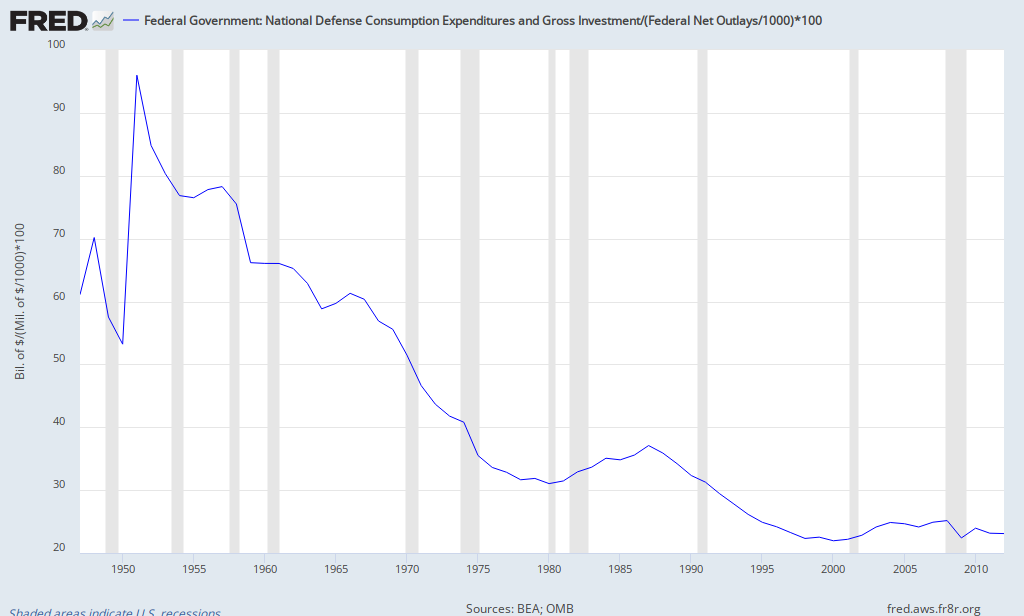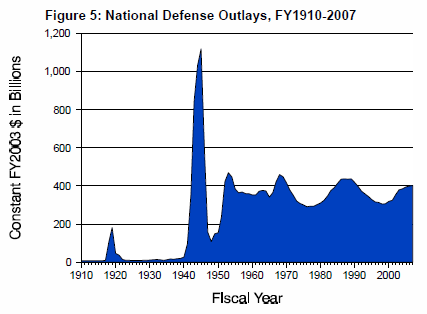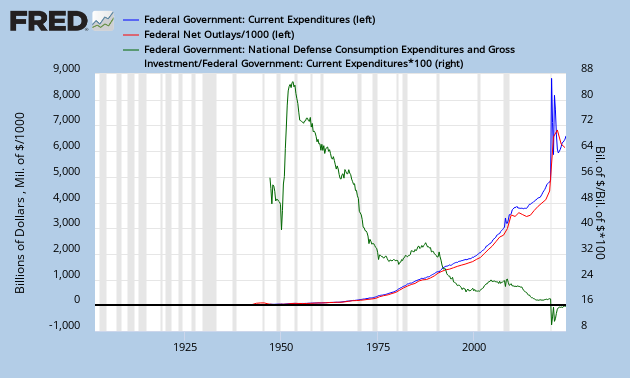Foreign Policy has published this week an article by Andrew Foxall titled ‘Kicking Putin off the Island’ that I found typical of doublethink. [1]
 |
| (Image source) |
A second factor was the relevant mention of the central role of the civil society in the liberation process, what I called in French “peupler l’espoir” in a footnote of the previous part of this serie ('The inevitable counter-revolution of the American people'). P.D. Scott has written about this role too.[1b]
I’ve chosen to not simply replace the name Putin by Obama in the original text because the U.S. political context is much more complex: Obama is the world’s loneliest leader, isolated and surrounded by stupidity. He is the consenting prisoner of the U.S. deep state.
The only order that is really worth anything does not come through the enforcement [...] of law, it comes through the establishment of a society which is just and in which harmonious relationships are established and in which you need a minimum of regulation to create decent sets of arrangements among people. But the order based on law and on the force of law is the order of the totalitarian state, and it inevitably leads either to total injustice or to rebellion-eventually."The Problem is Civil Obedience", Howard Zinn (May 5, 1970)
Kicking the deep state off the U.S. land
The United States of America after Obama don't need to be ruled by the deep state, and driving a wedge between the president and his craven inner circle is the first step.
The deep state has directly or indirectly ruled the U.S. since 1963. And, after 50 years in power, there are few signs that he will abdicate his position anytime soon. Using the voice of Hillary Clinton, the deep state has stated it may seek re-election in 2016, meaning he would rule until 2020 -- by which time it will rule since 57 years.
No tyranny, however, lasts forever -- Hitler's 1,000-year Reich lasted all of 12 years -- and it is in this context that we should view the deep state's rule. Its power is not what it once was: The social contract it implicitly built with the American people in his earlier years -- he could do whatever he liked, as long as life improved for many of them -- is broken. High rates of economic growth are long gone, and so too is the increasing standard of living that they provided. Americans are becoming restless and, although the opposition congressmen as a whole are cowed and quiet (with a very few exceptions), opposition movement have performed well in recent election polls. The deep state resorted to destabilizing Ukraine (at least, in part) to boost its falling approval ratings, which are now record low.
While many U.S.-watchers cannot imagine the country without the deep state at the helm, it's time for leaders to start. In confronting a moribund, revanchist transnational deep state, the world must have a clear vision of the ideal post-deep state America.
In a lot of ways, Obama was an unlikely president. As the first African-American President of the United States, his race and culture have played a prominent role in this, both positively and negatively. His relative youth (47 when elected) has alternately resulted in his being praised for his freshness and criticized for his inexperience. His temperament and demeanor have drawn praise for his perceived unflappability and criticism for the perception of his lacking emotional attachment. [2] When G.W. Bush stepped down on January 2009, Obama became acting president. One of his first acts was to order the first two Predator airstrikes of his presidency in Pakistan. The Guardian described the deep state recently as having "brought darkness to America," but, driven and certain of his own staying power, it ascended without hesitation. It hasn't looked back since its inception.
Since decades, the deep state has fostered a grotesquely decayed, corrupt, illiberal system that constrains democracy, centralizes all power, curtails media freedoms, reins in the judiciary, restricts civil liberties, and treads on human rights. Outside of U.S., the regime carries out extrajudicial murder, engages in the arbitrary use of force, and promotes Washington interests with utter disregard for international norms.
It wasn't always this way.
Up to 1963, the U.S. had the potential to develop along a liberal-democratic path. The country was a multiparty democracy in which officials were chosen in regular elections; its fledgling economy was based on markets and private property, and its media independent and pluralistic. Starting 1989, the Russian military withdrew peacefully from Eastern Europe and the Soviet successor states, pursued cooperation with the West on nuclear disarmament, although Russia was forced to accept the expansion of NATO. To be sure, serious issues remained (not the least of which, U.S. deep state above the legal system and its pervasive nature of organized crime), but the country was headed in a promising direction when its government strongly reduced deficits and curbed debt. U.S. President Bill Clinton described this period as "a time of real possibility and opportunity."
Except with the visible growing inequality, nowhere is the deep state's impact on U.S. as visible as in the country's political sphere. Since the 1963 parliamentary elections - the last before JFK was killed – the two parties are increasingly polarized. In the most recent parliamentary elections, in 2013, polarization in the House and Senate is at the highest level since the end of Reconstruction.
Since the ‘Halloween Massacre’ in November 1975, the deep state assembled an inner circle of individuals that would assist the top executives in building a "new" USA. Although the faces have changed over the years, many remain the same, or share the same ideology of Christian Reconstructionism.
Pr. P.D. Scott has described this inner circle consists of linked groups of people. It is a cohort of individuals who control key sectors of U.S. kleptocratic economy and its brutal security services, but who've never felt the heat of sanctions over U.S. actions in foreign countries -- something European Court of Human Rights has called a "cruel and inhuman treatment." By targeting these individuals in this inner circle, the world would drive a wedge between the deep state and his closest allies. But it can do more to weaken his standing.
Sanctions should become the status quo, and they should go further than visa bans and asset freezes, to include asset seizures. Given the choice between siding with the deep state and protecting some of their vast wealth stored in others capitals and financial centers, enough of them will go with the latter.
The friction and resentment that this creates will demonstrate the growing fissures within the deep state -- over what is needed to improve U.S. economy, what direction the country is headed, and whether international isolation is sensible -- and may even lead to U.S. citizens deciding the country needs new leadership. This would make clear to the next generation of politicians, policymakers, and businessmen that being associated with the deep state and his system comes with a price.
If the world is going to uproot the deep state, it must remember that past successes employed more subtle strategic campaigns. The West likes to say to have won the Cold War because of the superiority of capitalism over Soviet communism, but one of the most subversive -- and effective -- acts it undertook was to offer visas to Soviet students as part of "cultural exchange" programs. In doing so, the students were exposed to the West's democratic and liberal values and took these back to germinate in the Motherland. When Soviet leader Mikhail Gorbachev's twin reformist policies of glasnost ("openness") and perestroika ("restructuring") took hold, Soviet citizens were equipped to take advantage. In the words of one U.S. foreign service officer involved in these programs, those citizens "came, they saw, they were conquered, and the Soviet Union would never again be the same."
Now, once again, all countries should liberalize their visa regimes with the West, rather than follow the European Union's lead in freezing talks on a visa-free regime. This will make it easier for the next generation of U.S. decision-makers to expose themselves to liberal-democratic values and, as a result, they will be far better prepared when the deep state leaves power.
Offering cultural exchanges may seem like a long-term program, but in the short-term the West could pay more attention to countering the deep state's increasingly anti-Russia propaganda in the West. Across the Soviet Union and Eastern Bloc, Radio Liberty and Radio Free Europe broadcasts were an important alternative to the Kremlin's communication. Now, because the Western leaders are reviving a Cold War thinking, all countries must provide money, expertise, technology, and support for English and Spanish-language broadcasting in America. This would meet the deep state's propaganda head-on, and begin to drive out bad information with good. It would send a clear message that the world is not going to give up on the U.S. deep state just yet.
It is not possible to turn the clock back to a pre-deep state era, but that doesn't mean the world should consign the U.S. to the dustbin of history. Despite what political scientists might claim, it is not inevitable that the post-deep state U.S. will be fascist again. Although politicians are embattled and less prominent than they used to be, there are still capacity to take offense in the U.S.. Even the Soviet Union's Politburo was not as monolithic as many assumed. Whether the end of the deep state's rule is evolutionary or revolutionary, the world must be clear about how it hopes to see U.S. develop; it must be willing to put long-term strategic objectives over short-term economic interests.
U.S. without the deep state is cloaked in uncertainty, and there is no guarantee it would be more democratic or liberal -- when anti-government protests broke out in the U.S., they had more to do with rejecting the 1% than rejecting the deep state’s take-no-prisoners style of leadership. But the world leaders should help guide a post-deep state U.S. for the sake of the U.S. people, Europe, and the world as a whole. Governments should engage in dialogue with american NGOs and civil society [3], supporting those battling corruption and promoting human rights, civil liberties. They ought to speak to U.S. politicians actively supporting these goals in their country, committed to establish a constitutional convention and a political awakening among citizens.
The deep state might be influencing Western governments to flex their military muscles in Ukraine and demonstrating their steely indifference to political demands from the citizens, but in the end it is the others governments and civil society, and not the transnational deep state, who could ultimately determine U.S.'s future.
___________________
[1] As Georges Orwell defined it in his book 1984: “To know and not to know, to be conscious of complete truthfulness while telling carefully constructed lies, to hold simultaneously two opinions which cancelled out, knowing them to be contradictory and believing in both of them, to use logic against logic, to repudiate morality while laying claim to it, to believe that democracy was impossible and that the Party was the guardian of democracy, to forget, whatever it was necessary to forget, then to draw it back into memory again at the moment when it was needed, and then promptly to forget it again, and above all, to apply the same process to the process itself – that was the ultimate subtlety; consciously to induce unconsciousness, and then, once again, to become unconscious of the act of hypnosis you had just performed. Even to understand the word 'doublethink' involved the use of doublethink.[...]
The power of holding two contradictory beliefs in one's mind simultaneously, and accepting both of them... To tell deliberate lies while genuinely believing in them, to forget any fact that has become inconvenient, and then, when it becomes necessary again, to draw it back from oblivion for just as long as it is needed, to deny the existence of objective reality and all the while to take account of the reality which one denies – all this is indispensably necessary. Even in using the word doublethink it is necessary to exercise doublethink. For by using the word one admits that one is tampering with reality; by a fresh act of doublethink one erases this knowledge; and so on indefinitely, with the lie always one leap ahead of the truth.”
[1b] Peter Dale Scott ; see also his conclusion chapter in "Road to 9/11 - Wealth, Empire, and the Future of America”, Peter Dale Scott, University of California Press, 2007.
[2] Wikipedia.org; accessed 5/1/2014.
[3] A short list of insightful initiatives or articles:
National Liberty Alliance successfully promotes a constitutional convention ;
‘Fighting the Militarized State’, Truthdig (03/2014) ;
‘Maryland lawmakers want to cripple the NSA's headquarters’, The Verge (02/2014) ;
‘Corporatocracy: How the Corporate Welfare State Divides & Conquers’, Boiling Frogs Post (02/2014) ;
‘How to Dismantle the American Empire’, von Mises Institute (02/2014) ;
‘Get ready: the day we fight back against mass surveillance is coming’, The Guardian (02/2014) ;
‘The costume of Constitutionality’, Justice On Line (01/2014) ;
‘Restoring Our American Legacy. A politically incorrect guide to building wealth, security and effective political action in the 21st century’, The Daily Bell, Fall 2013 ;
Were America’s Founders ‘unhinged’ and suffering from a ‘meltdown’? Foreign Policy Journal, (01/2014) ;
‘The Fight of Our Lives’, Anti War (01/2014) ;
‘The Last Gasp of American Democracy’ Truthdig, (01/2014) ;
‘The Greatest Gift for All’, Foreign Policy Journal (12/2013) ;
‘How to Democratize the US Economy: A long-term plan to renovate the American dream begins at the local level and scales up’, The Nation (10/2013) ;
‘How the NSA Made Your Legal Defense Illegal’, von Mises Institute (03/2014) ;
Citizens’ Grand Jury initiative ;
"The Problem is Civil Obedience", Howard Zinn (May 5, 1970); a 2012 video is available ;
Olivier Stone’s Untold History of the United States ;
‘Let’s Get This Class War Started’, Truthdig (10/2013) ;
‘Stand up, Americans’, Paul Craig Roberts (10/2013) ;
‘Re-Decentralizing the Fed’, Project Syndicate (10/2013) ;
‘The Banality of Systemic Evil’, NY Times (09/2013) ;
‘Government Nullification: The Rightful Remedy and How to Resist Federal Tyranny in the 21st Century’, Foreign Policy Journal (09/2013) ;
Initiatives like Consensus911 / AE911 / Reopen911 / 9/11 & War on Terrorism (on GlobalResearch).
National Liberty Alliance successfully promotes a constitutional convention ;
‘Fighting the Militarized State’, Truthdig (03/2014) ;
‘Maryland lawmakers want to cripple the NSA's headquarters’, The Verge (02/2014) ;
‘Corporatocracy: How the Corporate Welfare State Divides & Conquers’, Boiling Frogs Post (02/2014) ;
‘How to Dismantle the American Empire’, von Mises Institute (02/2014) ;
‘Get ready: the day we fight back against mass surveillance is coming’, The Guardian (02/2014) ;
‘The costume of Constitutionality’, Justice On Line (01/2014) ;
‘Restoring Our American Legacy. A politically incorrect guide to building wealth, security and effective political action in the 21st century’, The Daily Bell, Fall 2013 ;
Were America’s Founders ‘unhinged’ and suffering from a ‘meltdown’? Foreign Policy Journal, (01/2014) ;
‘The Fight of Our Lives’, Anti War (01/2014) ;
‘The Last Gasp of American Democracy’ Truthdig, (01/2014) ;
‘The Greatest Gift for All’, Foreign Policy Journal (12/2013) ;
‘How to Democratize the US Economy: A long-term plan to renovate the American dream begins at the local level and scales up’, The Nation (10/2013) ;
‘How the NSA Made Your Legal Defense Illegal’, von Mises Institute (03/2014) ;
Citizens’ Grand Jury initiative ;
"The Problem is Civil Obedience", Howard Zinn (May 5, 1970); a 2012 video is available ;
Olivier Stone’s Untold History of the United States ;
‘Let’s Get This Class War Started’, Truthdig (10/2013) ;
‘Stand up, Americans’, Paul Craig Roberts (10/2013) ;
‘Re-Decentralizing the Fed’, Project Syndicate (10/2013) ;
‘The Banality of Systemic Evil’, NY Times (09/2013) ;
‘Government Nullification: The Rightful Remedy and How to Resist Federal Tyranny in the 21st Century’, Foreign Policy Journal (09/2013) ;
Initiatives like Consensus911 / AE911 / Reopen911 / 9/11 & War on Terrorism (on GlobalResearch).












